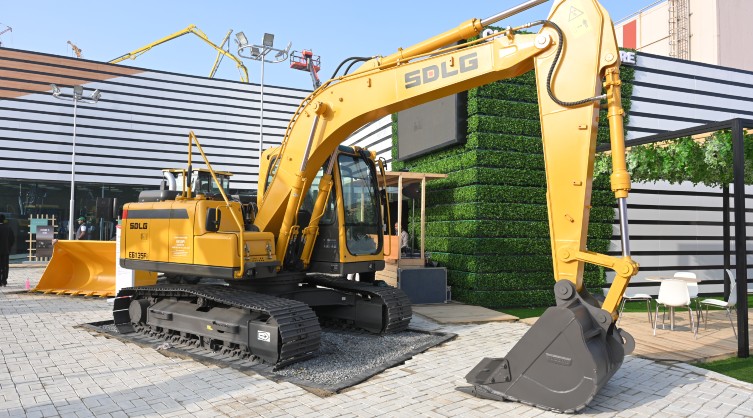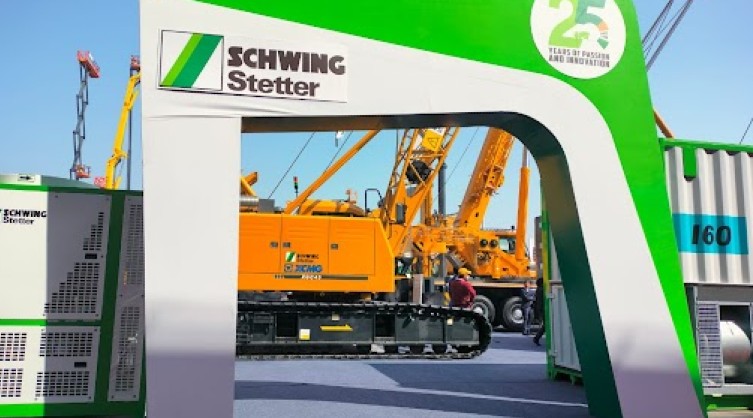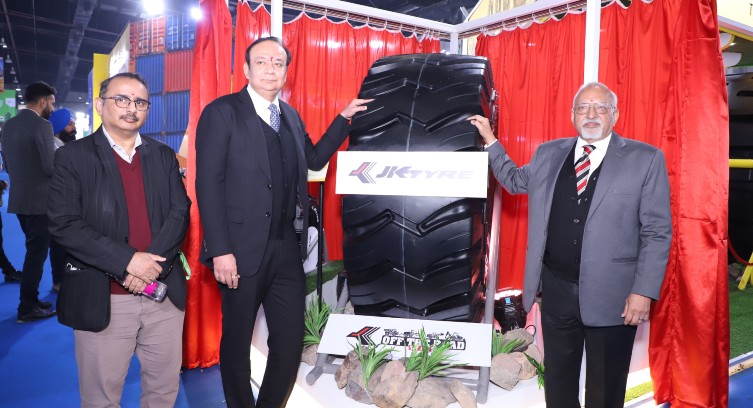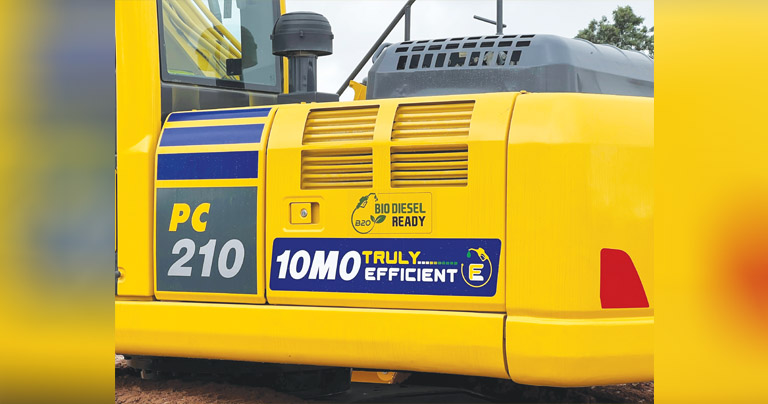IoT-enabled monitoring boosts the efficiency of concrete batching plants
By Edit Team | February 1, 2023 11:06 am SHARE
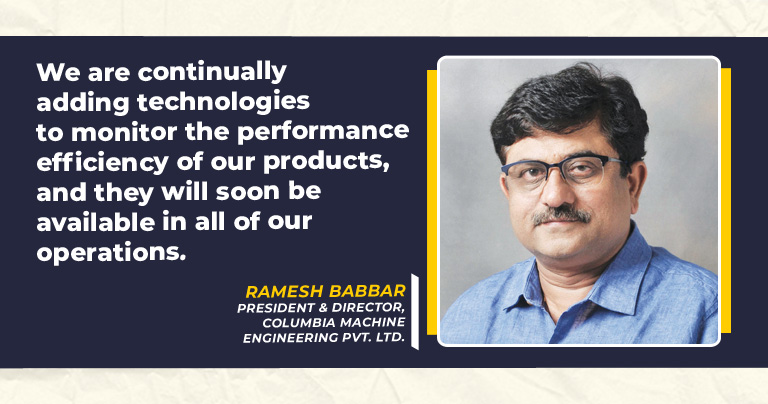
Speaking about their focus in 2023, Ramesh Babbar, President & Director of Columbia Machine Engineering, highlights their intent to meet all potential business prospects and showcase their newly developed mould offerings that offer a complete solution for their concrete block machines.
What will be your primary focus at bauma 2023?
Bauma ConExpo is taking place after four years, so it has become more critical than ever for us to connect with our audience correctly. It is the largest show for construction machinery in North India, with many local and foreign exhibitors. It is well-marketed and has attracted significant visitors from the relevant industry segments. Columbia now supplies moulds to any large-size concrete block machine for special and unique design paver blocks, kerbstones, fly ash bricks and retaining wall blocks.
In addition to the SPM20, SPM26, and SPM30, Columbia now offers the Half Board Plant Model 50 with a pallet size of 1067×700 mm. This plant is equipped with an automatic pallet transfer system for transferring products on steel pallets and a plate-style cuber or clamp cuber for the automated cubing of products. Several automated plants of this configuration manufactured by CMI USA have been operational worldwide for quite some time. We have plans to manufacture this from our factory in India.
We have been manufacturing moulds in our factory at Vadodara for our SPM20, SPM26, and SPM30 customers for the last 15 years. Recently, we have started manufacturing moulds for half-board machines from European manufacturers. With our in-house state-the-art manufacturing facilities, we have supplied these moulds to India’s producers of blocks, bricks and pavers.
What are your thoughts on digitalising construction operations in the coming years?
Columbia has been offering a control system for batch-mixing plants equipped to visualise the process, monitoring, and storage of operational data. We are also in the process of introducing IoT to the machines as the next step. This will help our customers closely monitor operations in their plant and check their output, raw material usage, waste, and much more. We have already installed two IoT devices at our customer’s plant for a trial run. Our technical team is constantly monitoring the performance of these devices, and shortly we will be in a position to offer this as a standard feature in all our plants. We are constantly adding innovations to monitor the performance efficiency of our products, and soon they will be featured in all our plants.
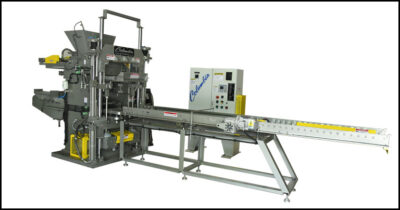
The construction equipment sector and the government in India are working together to improve indigenisation. How do you assess India’s export potential in this context?
Globally, countries are reducing their purchases from China due to political reasons. Columbia Machine exports to countries in Africa, SAARC, and Southeast Asia from our manufacturing facility in India. The policy of other governments to distance themselves from Chinese products will boost our sales in the international market. Our government has also taken several steps to start manufacturing electronics items in India that were previously outsourced to China. This will help us procure quality products, making our machines more durable. Columbia has recently launched its South American operations from Brazil. With our solid and globalised sales network, we would be exporting more automated plants to these developing and developed economies. With these added sales, we see great potential in the next 3-5 years, contributing more than 35 percent to our top-line growth.
In your opinion, which equipment, products, solutions, and developments will drive the industry’s shift to sustainable construction?
With the increase in housing and infrastructure requirements, the concrete block industry will grow simultaneously. Road development provides concrete block manufacturers with opportunities to supply paver blocks and retaining wall blocks. Concrete pavers are a practical solution for constructing roads (particularly in high-rainfall areas), high-traffic intersections, and shoulders because of their high compressive strength, wear resistance, and ease of maintenance. Retaining wall blocks produced by Columbia Machines have the advantage of precision height control and are extensively used for bridges and flyovers. The construction of infrastructures such as seaports, container terminals, inland container depots, and the Dedicated Freight Corridor (DFC) will necessitate a large quantity of high-strength paver blocks.
Our customers are slowly shifting toward product and pallet handling automation with cubing. This will reduce the dependency on unskilled labour and result in great operational days. Furthermore, product handling damages will be reduced, resulting in increased output and profitability.
We have designed and developed a Core Puller Assembly for our existing range of concrete block machinery for manufacturing cored retaining wall blocks and cored bricks, which have minute cores in the elevation. While constructing a flyover in Mumbai, one of our prestigious customers supplied these RE blocks to a leading contractor. The approach to this flyover, built with this block of intricate design, is an engineering marvel in itself.
How are we addressing infrastructure project safety and project management requirements?
We at Columbia, a part of Columbia Machine Inc., USA, are committed to manufacturing the best quality construction equipment that contributes to building India and fulfils the dreams of many entrepreneurs, contractors, and developers. Our plants are CAT3-compliant, conforming to most international safety norms. We manufacture and supply fully automated production lines consisting of batching mixing plants, concrete product machines, pallet and product handling systems, and automatic cubers. There are safety interlocking systems between successive operations to ensure the product’s quality, the operators’ safety, and the plant and machinery. As a part of the sales and supply of equipment, we provide various value-added services to our customers, like finalisation of plant and factory layout, lean methods of operations, feasibility reports for banks or NBFCs, mobilisation of plants from one location to another after the completion of a project, and much more.
What are the environmental safeguards in place to manage carbon footprints?
Columbia Machines work on the principles of vertical mould vibration technology, producing concrete products with dimensional accuracy, uniform density, higher strength, low water absorption, and abrasion resistance. These are critical factors in manufacturing high-strength pavers. In addition, Columbia is the first choice of contractors, sub-contractors, and soil stabilising companies to produce retaining wall blocks. This is due to the high accuracy that can be achieved only on Columbia Concrete Block Machinery.
India is generating more than 2 GW of electricity in thermal power plants. This results in the generation of tonnes of fly ash, which is hazardous to health and, in turn, will need large amounts of land for ash dispersal. Columbia’s technology to produce high-strength fly ash bricks is helping thermal power plants and brick producers consume fly ash and make green and eco-friendly products. In addition to this, our machines consume quarry waste to produce value-added concrete products. This is an ideal conversion or value addition for a product that would have been used for either landfill or would have resulted in environmental pollution. Our machines are fitted with the most power-efficient IE2 and IE3 electric motors.
For more details visit: https://www.colmac.in/
Cookie Consent
We use cookies to personalize your experience. By continuing to visit this website you agree to our Terms & Conditions, Privacy Policy and Cookie Policy.



